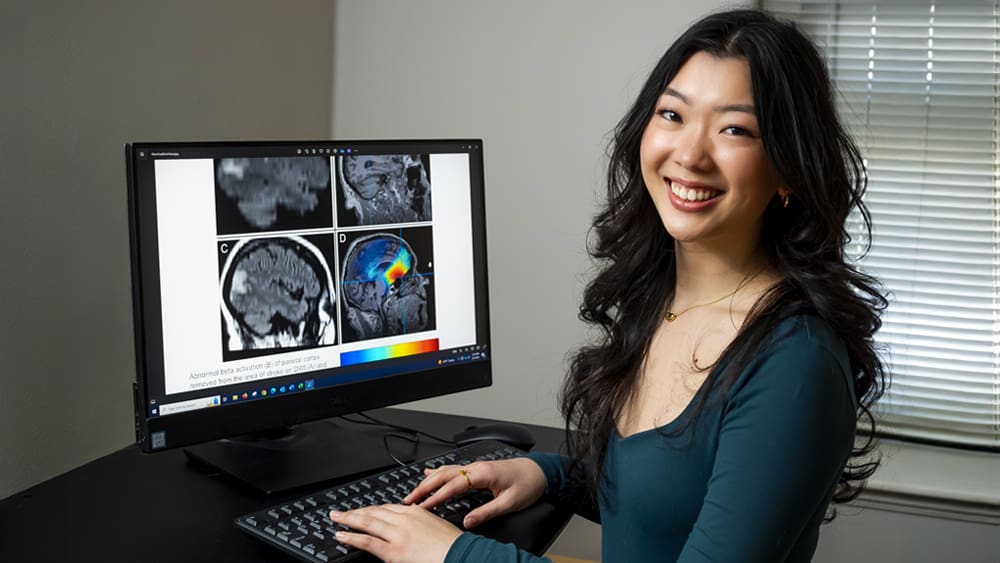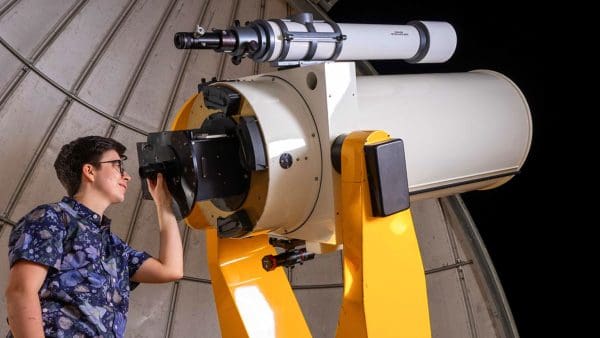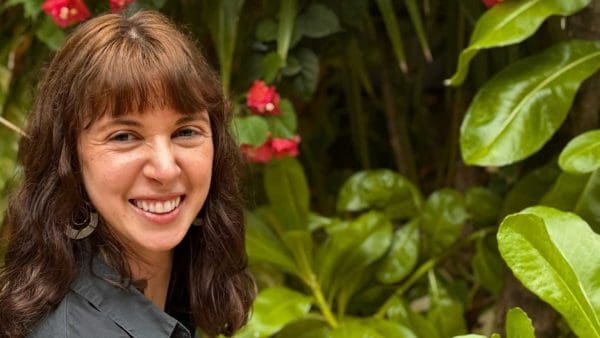
Molly Zhao at the computer, showing magnetoencephalography (MEG) brain scans on the monitor.
Molly Zhao is a junior studying neuroscience and economics. We spoke with her about her research in stroke recovery.
How did you become interested in stroke research?
My freshman year, while taking the class Cognitive Neuroscience, Dr. Elisabeth Marsh from the School of Medicine came and discussed her lab’s stroke research, particularly in supporting patients’ recovery. Her insights shed light on the complex nature of stroke and recovery, which inspired me to join the lab.
Describe your research at the Johns Hopkins Bayview Stroke Intervention Clinic.
Currently, I am researching the social determinants of health, studying various socioeconomic variables that affect patients’ follow-up rates, and ultimately their post-stroke recovery. Our project uses a large database of stroke patients to identify social factors that may influence recovery and thus address these common variables to reduce the risk of future stroke onset.
In the clinic, I also assist in administering the Montreal Cognitive Assessment to patients to evaluate various cognitive domains, including attention, executive functions, and memory. Our lab also employs magnetoencephalography to monitor brain activity during cognitive tasks. With our lab coordinator, I assist patients in navigating their magnetoencephalography sessions at one-, six-, and 12-month intervals poststroke. During these exams, I can observe patients’ brain activity in real time to later understand the impact of strokes on higher-order cognitive processes.
What personal perspectives do you bring to this research and how does your work in the Marsh Lab connect to your broader interests?
My work is so personal because last year, my grandpa suffered a stroke. Just like my grandpa, each patient in clinic presents a story beyond the textbook symptoms on paper or a prior medical history. Seeing the impacts of stroke directly within my family has made every patient’s story much more real and important for me.
I am also fascinated by the “behind-the-scenes” of medicine. My previous internships at Biohaven working on clinical trials and on the biotechnology health care equity research at Evercore ISI translating R&D innovation into public understanding and investment appeal have given me further insight into the complex interplay between innovation, accessibility, and quality in patient care. This comprehensive view of the diverse perspectives in health care delivery directly informs my long-term goal of helping patients individually and fueling innovation for patient populations on larger scales.




